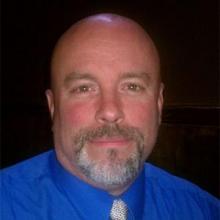Consultancy’s Goal? Get The Most Out Of ‘As A Service’
Submitted by Jimmy Sheridan on

The initial investment is a big one, he said, with the cost of updating and refitting a client's systems involving a lot of capital, which is not immediately returned to the consultant, but instead made over a number of years during the course of the service contract. However, Dark Arts doesn’t bind a client to a long-term contract, which means a client could leave before that engagement becomes profitable for Dark Arts.
"When clients ask how long our contracts are, we say they can be as long as they want them to be,” Solt said. "We don’t bind people to a 12- or 24-month contract. If they don’t like our service, they should feel free to fire us, although I don’t believe that is something that the average business owner is comfortable with or wants to tackle."
However, Solt added, the expense and difficulty of replacing an entire environment, including hardware, network and software, can make his solution very sticky.
Solt - who is writing a doctoral dissertation on decision theory as he seeks a Ph.D. in business administration - said he’s applying lessons from his studies to better understand his clients’ buying behavior. "Once they shift over," he said, "they don’t shift out."
The MSP business model is much less sticky, Solt said, adding that an MSP’s client can easily go to a dozen other MSPs, all of which will quote different numbers for solutions that they can easily switch to.
Dark Arts has seen a 10 to 20 percent annual growth rate since its founding in 2006, he said, with its toughest segment being its non-TaaS clients that come and go as quickly as they do at other MSPs. However, Solt said, the TaaS model gives him a much sticker clientele.
Solt's nine-man shop is thriving, he said, with no sales team or marketing campaign. He said that all his new customers come through recommendations and word of mouth. Although the capital involved in TaaS, without the safety net of contractual terms, may scare off other consultancies, Solt adds, Dark Arts continues to grow with much of its most stable and profitable business coming from its TaaS practice.
Solt said he believes in his new business model and its effectiveness.
"I tell my people I'm willing to eat my own dog food,” he says. “If I didn’t believe in it enough to go out and work the environment and build the environment myself, than it's not something that I would trust anyone else to do."






